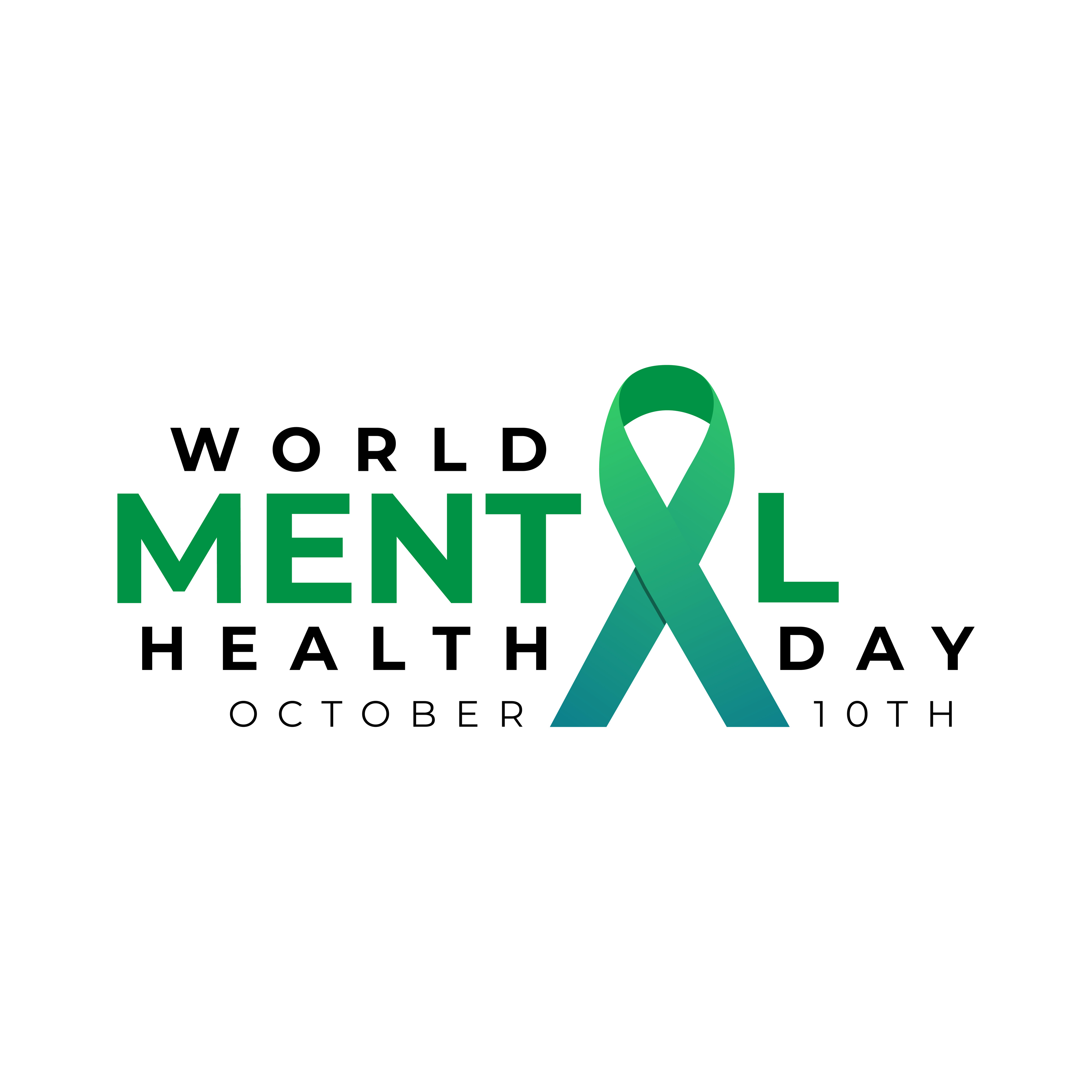9/25/2024 2:59:56 PM
World Mental Health Day | Prioritising Workplace Wellbeing

World Mental Health Day is an international day dedicated to raising awareness of mental health issues and promoting mental well-being around the globe. It aims to reduce the stigma surrounding mental illness, encourage open conversations, and highlight the importance of mental health in overall health and wellness. The day provides an opportunity for individuals, organisations, and governments to advocate for better mental health care, share resources, and support those affected by mental health challenges. Through education, advocacy, and action, the annual awareness day seeks to create a more inclusive and understanding world for everyone.
When is World Mental Health Day held?
Observed for the first time in 1992 by the World Federation for Mental Health and World Health Organization (WHO), World Mental Health Day reoccurs on the 10 October every year.
History
Originally, the day did not have a specific theme and was intended to bring attention to mental health issues globally. In 1994, for the first time, a theme was introduced, focusing on the improvement of the quality of mental health services. Over the years, World Mental Health Day has grown to encompass a wide variety of topics related to mental health, from addressing mental health stigma to improving mental health care access in underprivileged areas. Today, the event is recognized in over 150 countries, and each year, global participation grows, highlighting the increasing awareness and importance of mental well-being.
Notable Milestones + Policy Changes
Several notable milestones and policy changes have been influenced by World Mental Health Day:
2001 WHO Report: Influenced mental health reforms globally, including the UK, pushing for better awareness and care.
2013 WHO Mental Health Action Plan: Aligned with UK efforts to improve access, reduce stigma, and promote prevention in mental health care.
2016 UN SDGs: The UK supports mental health as part of the UN's SDGs, integrating it into national and international health policies.
2019 WHO Special Initiative: The UK's mental health system aligns with this initiative, focusing on expanding services.
2020 COVID-19 Response: The UK increased mental health funding and policies during the pandemic, reflecting global priorities.
The Theme for World Mental Health Day 2024
This year’s theme is “It is time to prioritise mental health in the workplace”.
The Mental Health Foundation Reports “It is estimated that 15% of UK workers have an existing mental health condition.”
Work can affect mental health because of things like stress, relationships with colleagues, discrimination, harassment, bullying, poor treatment, lack of support or disliking the work.
Employers are required under the Equality Act 2010 to make reasonable adjustments for known disabilities and long-term physical or mental health problems.
How Can Employers Prioritise Mental Health in the Workplace?
Employers can prioritise mental health in the workplace by implementing several key strategies:
Promote an open culture: Encourage open conversations about mental health, normalise discussions about well-being, and reduce stigma by offering safe spaces where employees can talk about their struggles.
Offer mental health resources: Provide access to mental health services, such as employee assistance programs (EAPs), counselling, and stress management resources.
Mental health training: Offer mental health awareness and first-aid training to staff and management, ensuring that everyone knows how to support colleagues.
Reasonable adjustments: Ensure compliance with laws like the Equality Act 2010 by making necessary adjustments to the work environment for those dealing with mental health conditions.
Create mental health champions: Assign staff members as mental health advocates or champions to lead initiatives and support peers.
How Can Employees Look After Their Own Mental Health in the Workplace?
Employees can take several steps to look after their own mental health while at work:
Set boundaries: Define clear boundaries between work and personal life to avoid burnout. Ensure you take regular breaks, use your lunch hour, and try to disconnect after work hours.
Practice self-care: Engage in activities that reduce stress, such as mindfulness, exercise, or short walks. Take time to recharge mentally, even during busy periods.
Speak up: If you’re struggling with mental health, communicate openly with your manager or HR about what support you need. Don’t hesitate to request adjustments if needed.
Utilise support networks: Seek out mental health resources provided by your workplace, such as counselling services, wellness programs, or peer support groups.
Prioritise tasks: Manage workload by organising tasks according to priority. Avoid multitasking, as it can increase stress levels and lead to feelings of being overwhelmed.
Monitor your mental health: Pay attention to signs of stress or burnout, such as difficulty concentrating, irritability, or fatigue, and take proactive steps to address them early.
Resources
Here are some helpful resources for mental health support and information:
- Mind: A UK-based charity offering support and advice for mental health problems.
- Mental Health Foundation: A leading mental health organisation that provides resources and tools to improve mental well-being.
- Samaritans: A 24/7 helpline for anyone struggling to cope, offering confidential listening services.
- NHS Mental Health Services: Provides access to mental health support, including therapy and counselling services.
- Employee Assistance Programs (EAPs): Many companies offer confidential counselling and support services for employees dealing with mental health challenges.
Our ‘Mental Health Awareness’ course has been designed for health and social care professionals, and covers topics including:
- the importance of good mental health
- some of the contributing factors to mental health problems
- what mental health problems are, the stigma and stereotypes that surround them and some common misconceptions
- the different types of mental health disorders and the effects that these can have
- what affects mental health
- the practical support that can be offered to people.
Click here to request further information on Blue Stream Academy’s Mental Health Awareness eLearning for healthcare professionals.